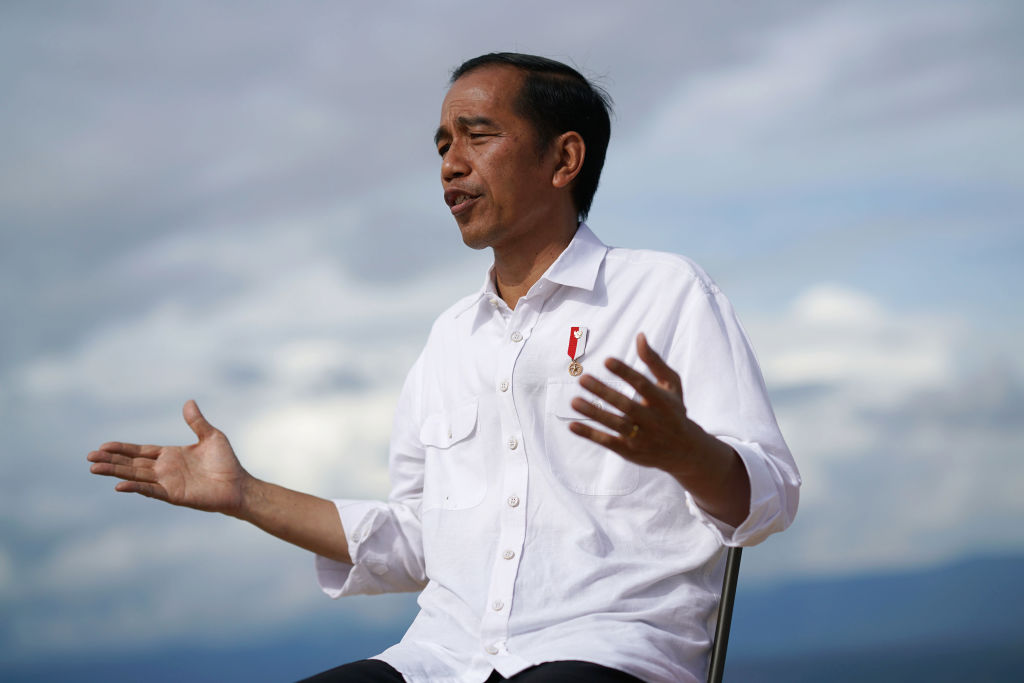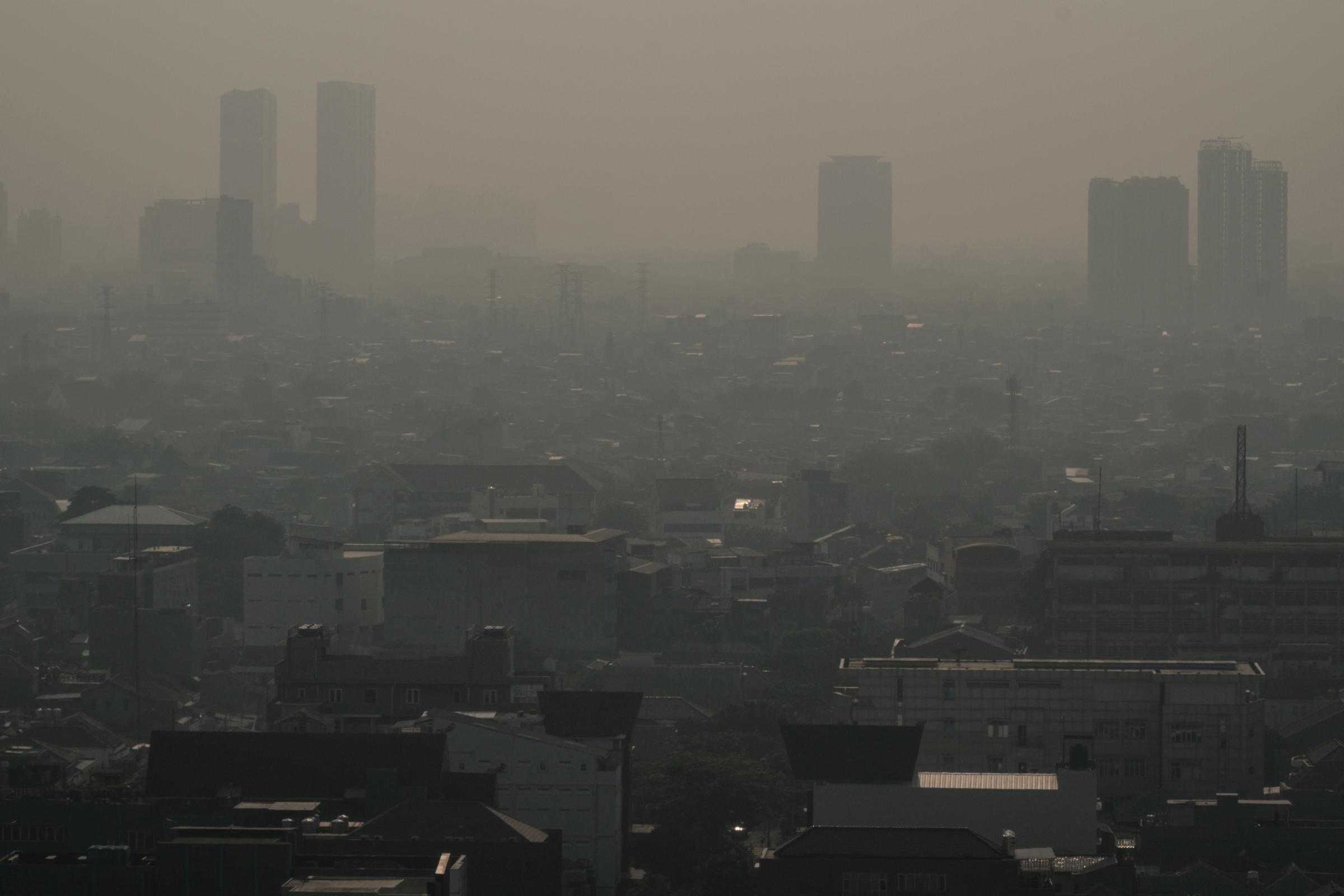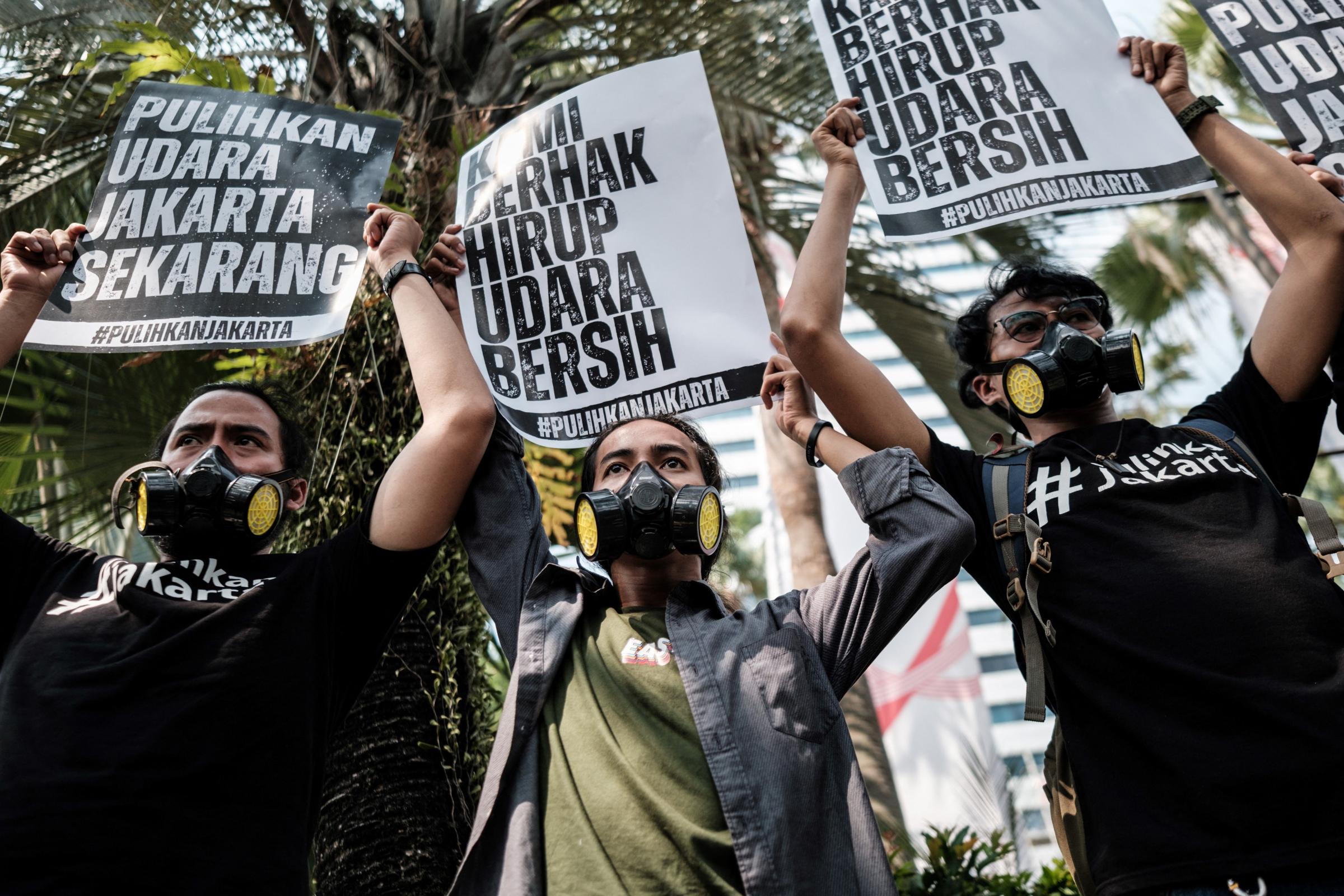
Jakarta and its surrounding cities are shrouded in thick smog this month, and even Indonesian President Joko Widodo, commonly referred to as Jokowi, appears to be no match for the haze, having dealt with a stubborn cough for four weeks that some say may be caused by the bad air.
“He has never felt like this,” Tourism and Creative Economy Minister Sandiaga Uno told reporters on Monday, adding that the President’s doctor pointed to the poor air quality as a potential contributor to his ailment.
There has long been concern, both at home and abroad, about the city’s smog problem, which, in recent weeks, has been more apparent than ever: Jakarta has been lingering near the top of world pollution rankings since May, and the capital was listed as the world’s most polluted city for several days last week, according to Swiss air quality technology company IQAir.

But whereas the government has shown little urgency in the past to address the air pollution problem, it seems like the President’s cough, coupled with an outpouring of complaints on social media—and an in-person protest Wednesday in front of Jakarta City Hall—about the hazy skyline and the respiratory problems many residents have been feeling, has finally spurred authorities to action.
On Monday, in what some have said is the most initiative the government has shown to address the matter, Jokowi held a meeting with ministers to discuss solutions to Jakarta’s air pollution. The group announced a number of measures—including random emission tests for vehicles in Jakarta, and fining or revoking the licenses of drivers who fail the test—though details on when or how the measures would be implemented remained scant. Jokowi also said they were mulling a pollution tax for vehicles and weather manipulation programs to induce rain to clear the haze.
Environmental advocates say that the spate of proposals is a significant development for Indonesia, where authorities have long been touchy about acknowledging the air pollution problem and resistant to calls for action.
Read More: Asia Is Home to 99 of the World’s 100 Cities Facing the Greatest Environmental Challenges
When other Southeast Asian states expressed concern about seasonal haze getting blown in from Indonesia in 2015, the then-Vice President said that their neighbors were being ungrateful about the “nice air from Indonesia” they enjoyed at all other times of the year. And earlier this week, the Ministry of Environment and Forestry denied that Jakarta was the most polluted city in the world, saying that the country’s air quality index needs to be compared with other measures.
In 2021, a landmark court ruling sparked optimism from environmental campaigners that authorities would finally set out to tackle Jakarta’s air pollution, after 32 residents living in and around the city won a lawsuit filed in 2019 against Jokowi and six other top-ranking officials. After ruling that authorities were negligent in ensuring citizens’ rights to clean air, the court ordered the national and city governments to tighten Jakarta’s regulations on air quality standards and come up with a plan to minimize air pollution.
Since the legal victory, however, activists say there has been little progress on the court orders. The national government initially responded to the ruling with an appeal, which was rejected last year. And while Jakarta authorities have vowed to implement emission tests on vehicles and come up with an air pollution control strategy, Elisa Sutanudjaja, one of the plaintiffs in the 2019 lawsuit and the executive director of the Rujak Center for Urban Studies in Jakarta, tells TIME that the measures are too little and too slow. Residents are expected to lose 5.5 years of life expectancy, according to the University of Chicago’s Air Quality Life Index, due to the air quality falling short of WHO guidelines.
Read More: How Air Pollution Contributes to Millions of Early Deaths Every Year
Authorities have so far mainly focused on tackling the country’s congested traffic. Jakarta has promoted electric vehicles and installed bike lanes in an attempt to reduce the large number of motor vehicles on the road. And this month, as smog reached another high, authorities again encouraged citizens to use public transportation.
But environmental advocates say that officials are ignoring another significant contributor to Jakarta’s pollution problem: the smoke-spewing factories and power plants surrounding the city that rely heavily on burning coal. “The public is not the only source [of air pollution]. The source is also from industries,” Bondan Andriyanu from Greenpeace Indonesia tells TIME.
While about half of Jakarta’s air pollution is caused by vehicular emissions, coal combustion contributed to 14% of pollution during the wet season from October 2018 to March 2019, according to a joint study by public health nonprofit Vital Strategies and the Bandung Institute of Technology. And while the transportation sector is the largest contributor of pollutants including carbon monoxide and PM2.5, the manufacturing sector produces the highest sulfur dioxide emissions.
Read More: So-Called 'Green' Cities Promise a Climate-Friendly Utopia. The Reality Is a Lot Messier
On this front, the problem also looks set to worsen, as Indonesia’s coal consumption soared to a record high last year. A study published in July by the Centre for Research on Energy and Clean Air found that the emission of air pollutants from Indonesia’s coal power plants increased by 110% in the past decade and is expected to increase another 70% by 2030. The same study also found that air pollution from coal-fired plants was responsible for an estimated 10,500 deaths nationwide in 2022.
The environment ministry claims that it regularly monitors emissions from factories and power plants, but critics have pointed out that regulatory enforcement is weak and largely dependent on self-reporting from companies.
Among the measures announced Monday, Jokowi also called for greater supervision of industrial sites and power plants in the region, but it remains to be seen how exactly that will be implemented.

As activists gathered on Wednesday to call for more government action on air pollution, some are cautiously hopeful that the city’s air pollution may now finally be tackled in a holistic way—even if the changes are coming a little too late for thousands of Jakarta residents.
“It’s kind of sad that you have to wait until the President gets sick, then you act because of that,” Elisa says of the recent announcements, which have come as she too is feeling a sore throat and runny nose believed to be due to the smog. “I don’t know how many people already got sick.”
More Must-Reads From TIME
- The 100 Most Influential People of 2024
- How Far Trump Would Go
- Scenes From Pro-Palestinian Encampments Across U.S. Universities
- Saving Seconds Is Better Than Hours
- Why Your Breakfast Should Start with a Vegetable
- 6 Compliments That Land Every Time
- Welcome to the Golden Age of Ryan Gosling
- Want Weekly Recs on What to Watch, Read, and More? Sign Up for Worth Your Time
Contact us at letters@time.com